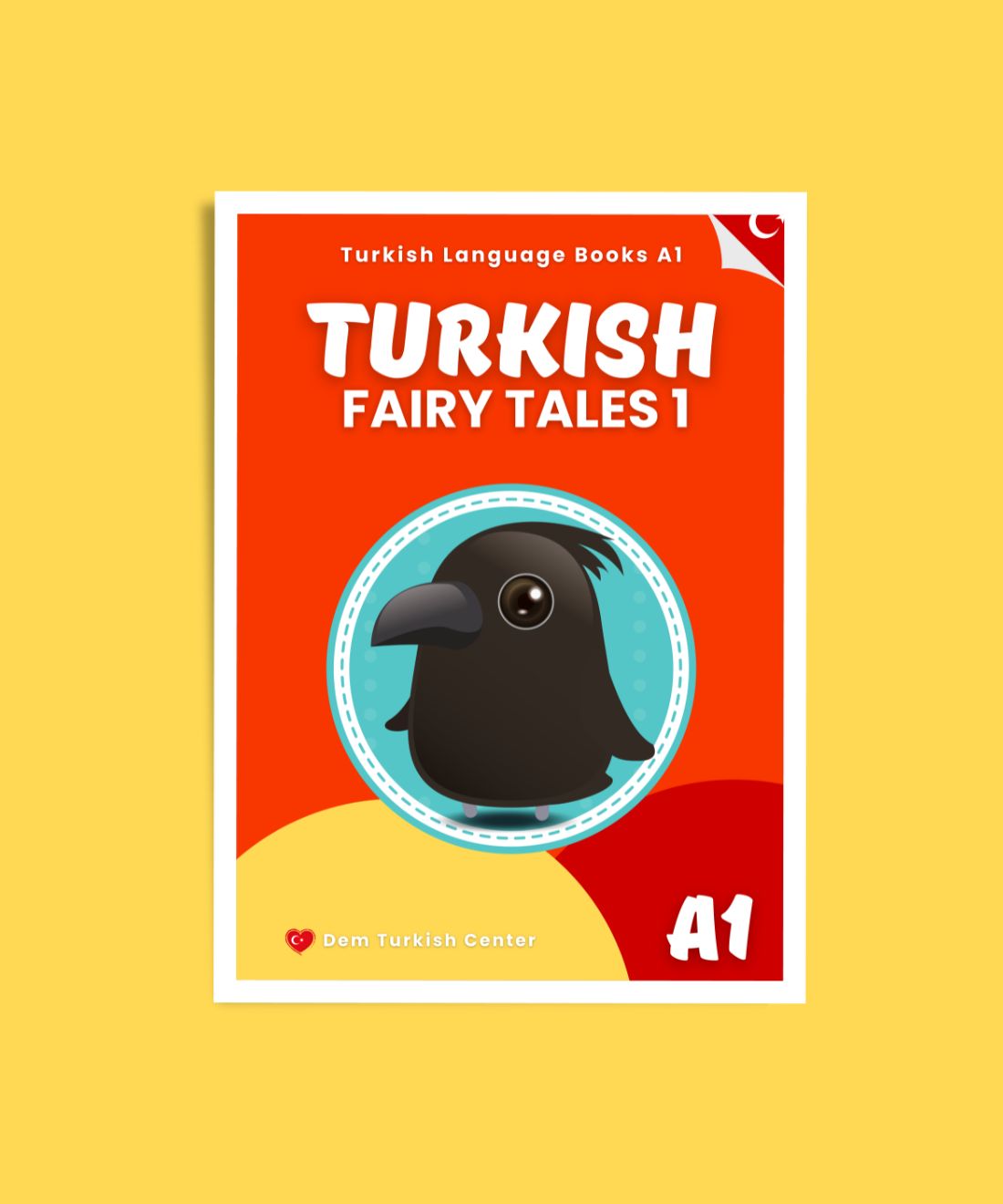
How To Learn Vocabulary Quickly and Easily From Stories
Expanding your vocabulary is a crucial step in mastering a new language. While conventional techniques such as using flashcards and relying on rote memorization can be useful, they often fail to provide sufficient context, which makes it challenging for the words to truly resonate. In contrast, stories offer rich and meaningful contexts that make vocabulary more engaging and easier to remember.
Learning Turkish language? Become a member and get the full access to the bookstore - for 1 year!
HOW TO LEARN VOCABULARY FROM STORIES
Read the text or listen to the audio guide below:
Here's how you can efficiently and effortlessly learn vocabulary by incorporating stories into your study routine.
1. Choose the Right Stories for Your Level
Start by choosing stories that align with your current language proficiency. If the material is too difficult, it might feel discouraging; if it’s too simple, you won’t be exposed to enough unfamiliar vocabulary.
Strive to find a balance where you can comprehend approximately 70-80% of the content. This way, you can infer the meanings of new words from the context without needing to stop constantly.
Where to Find Stories:
- Children’s Books Great for beginners due to their simple language and repetitive structures.
- Graded Readers Books specifically designed for language learners with levels from beginner to advanced.
- Short Stories Perfect for quick reading sessions and diverse vocabulary exposure.
- Audiobooks with Text Listening while reading improves comprehension and pronunciation.
Download Turkish easy reading lessons (A1) for self-study!
2. Read Actively, Not Passively
Passive reading won’t help you retain new vocabulary effectively. Instead, engage actively with the text:
- Highlight Unknown Words Use a pencil or digital highlighter to mark unfamiliar words as you read.
- Guess Meanings from Context Before looking up a word, try to infer its meaning based on the surrounding sentences.
- Take Notes Write down new words along with their meanings and example sentences from the story.
Download Turkish easy reading lessons (A2) for self-study!
3. Use Stories to Learn Words in Context
Words are easier to remember when tied to a narrative. Stories provide natural contexts where vocabulary is used in meaningful ways. This helps you:
- Understand the nuances of a word.
- Learn collocations (words that commonly appear together).
- See grammar and sentence structure in action.
For instance, rather than simply memorizing the word “to stumble,” seeing it used in a sentence like “He stumbled over a rock while walking in the dark” provides a clear visual and situational context. This makes the word easier to remember and understand.
Download Turkish easy reading lessons (Pre-intermediate) for self-study!
4. Re-read for Reinforcement
Repetition plays a vital role in retaining vocabulary. Re-reading stories helps reinforce the words you've learned and deepens your comprehension.
With each read-through, you solidify previously encountered words and may even notice details you overlooked the first time.
Tips for Re-reading:
- Focus on different aspects each time, such as vocabulary during the first read and sentence structures during the second.
- Challenge yourself to recall meanings without referring to notes.
Download Turkish easy reading lessons (B1) for self-study!
5. Practice Active Recall
After finishing a story, challenge your memory by recalling the new vocabulary you encountered.
Write down as many words as you can remember, then compare your list with your notes or the text to verify your accuracy.
This practice enhances long-term retention.
6. Create Visual Associations
Stories often include vivid imagery that can help you form mental associations with new words.
For example, if a story describes a character who feels “elated” after winning a prize, visualize their joyous reaction.
Connecting words to images or emotions makes them more memorable.
7. Incorporate Vocabulary into Your Speech and Writing
To truly learn new words, use them! Incorporate the vocabulary you’ve learned into your own sentences:
- Write a summary of the story using the new words.
- Use the words in a conversation or language exchange.
- Create your own sentences or short stories featuring the vocabulary.
8. Leverage Technology
Modern tools make learning vocabulary from stories even more efficient. Some useful tools include:
- E-readers and Apps Devices like Kindle allow you to highlight and look up words instantly.
- Language Learning Apps Tools like LingQ and Readlang let you read stories with built-in dictionaries.
- Anki or Quizlet Turn your vocabulary notes into flashcards for spaced repetition practice.
9. Listen to Stories for Pronunciation Practice
Listening to stories allows you to learn pronunciation and intonation while reinforcing your vocabulary.
Using audiobooks alongside their text helps you link the spoken and written forms of words.
Practice repeating difficult sentences aloud to enhance your pronunciation.
10. Enjoy the Process
The best learning occurs when you’re enjoying yourself.
Select stories that capture your interest, whether it’s an exciting mystery, a heartfelt romance, or a funny anecdote.
Engaging with content you love keeps you motivated and encourages you to continue learning.
Example Workflow: Learning Vocabulary from Stories
- Select a Story Choose a short story appropriate for your level.
- Read and Highlight Highlight unknown words and try to guess their meanings from context.
- Look Up and Note Look up the meanings of highlighted words and write them down along with example sentences.
- Re-read for Reinforcement Go through the story again, focusing on understanding the text more deeply.
- Practice Recall Test your memory by writing down as many new words as you can remember.
- Use the Words Write a short paragraph or discuss the story, incorporating the new vocabulary.
Building vocabulary through stories is an enjoyable and intuitive way to enhance your language skills. Stories offer context, repetition, and emotional connections that help make words more memorable and easier to use. By actively engaging with the text, leveraging technology, and practicing recall, you can expand your vocabulary more effectively than with traditional techniques.
So grab a story, immerse yourself, and watch the words come to life!
ARE YOU LEARNING TURKISH?
Learn Turkish yourself with Dem Turkish Center!














